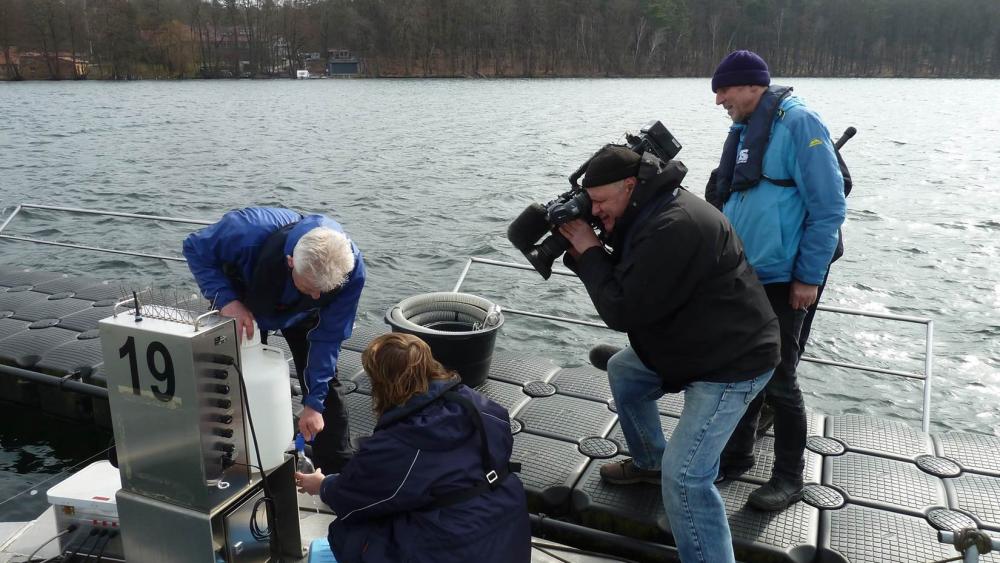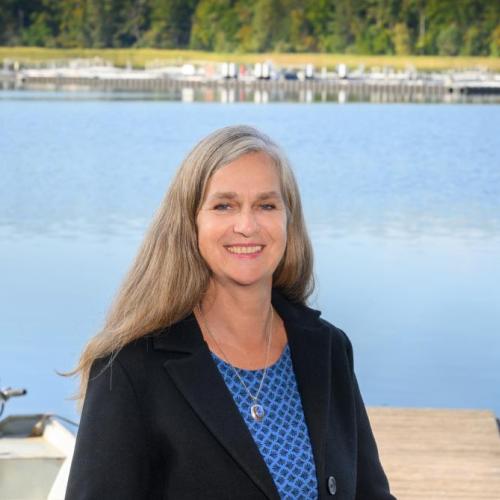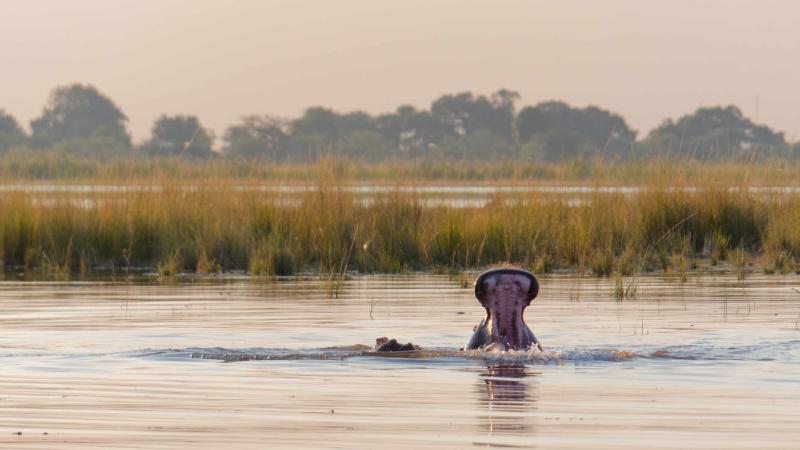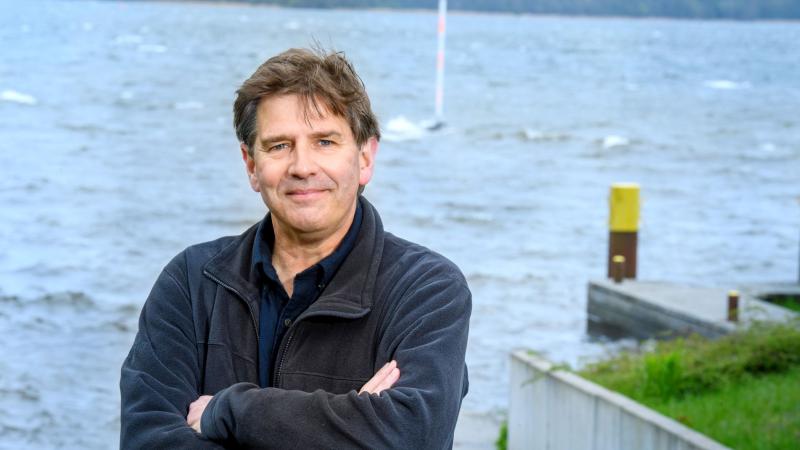
Photo: Stella Berger
Until now, large-scale experiments at the LakeLab were only carried out in summer and autumn. However, climate change not only affects lakes in the warmer seasons, but especially in winter. Due to the milder climate of recent decades, the lakes in our latitudes freeze on average less frequently or form thinner layers of ice cover, which melt faster. In the future, IGB scientists thus intend to explore the impacts of the changing ice cover on aquatic organisms and processes with the help of the LakeLab. But this can only be done if they are able to manipulate the duration of the ice cover in the enclosures – which is quite a challenge.
"This winter, we are conducting a pilot project in order to test various technical systems allowing us to promote or suppress ice formation", explains Dr. Stella Berger. Two systems which should prevent or reduce ice formation are currently installed: one is implemented to move the water in the enclosures with the so-called airlift system, and the other blows warm air onto the surface of the water. "Now at these winter temperatures, we see that the airlift system actually keeps the enclosures ice-free while we can influence the thickness and quality of the ice with the other system", says the project leader.
However in a next step, the duration of the ice cover needs to be extend. For this purpose, an installation applying cold air to the enclosures will furthermore be tested. "If this system works as well, we would be ready to use the LakeLab also during large-scale winter experiments. Our aim is to investigate how altered ice cover affects lake ecosystems and, in particular, the plankton succession", says Stella Berger.





